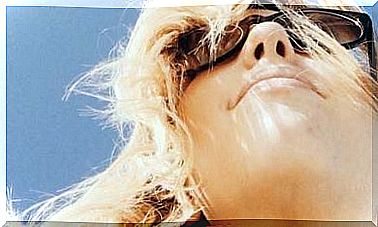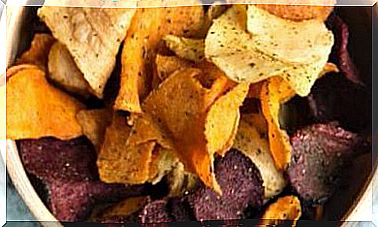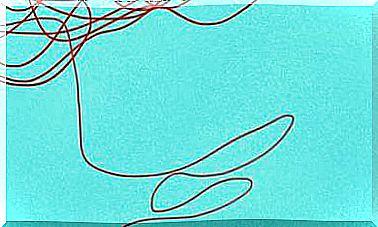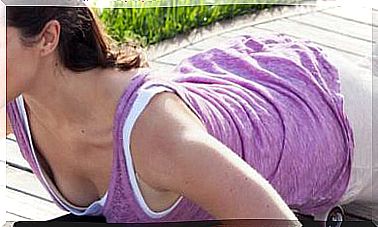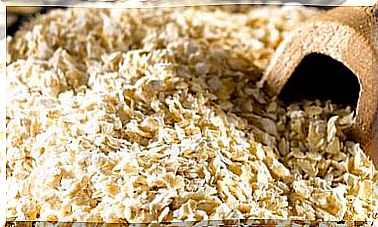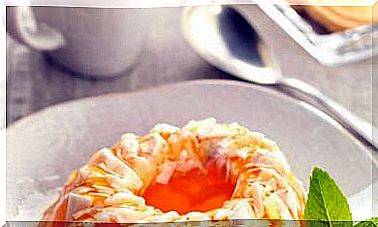How Diet Influences Hyperactive Children
More and more children are being diagnosed with attention deficit hyperactivity disorder. A proper natural diet seems to alleviate some of its symptoms.

Attention deficit hyperactivity disorder (ADHD) is defined as a picture of age-inappropriate inattention or impulsivity, with or without hyperactivity.
It is a very subjective picture, from the point of view of the observers, and according to the diagnostic tests it would include children from naughty to delinquent.
On its incidence, very different figures are given depending on the country. It affects 5-15% of school-age children and 50% of those referred to diagnostic consultations.
The truth is that there are those who consider it an invented diagnosis and those who report false diagnoses and children abused with aggressive medication.
So are we facing an epidemic of distracted and agitated children, or a fraudulent disease invented by the medical-pharmaceutical-industrial complex?
ADHD is linked to a deficit of essential fatty acids, especially docosahexaenoic acid (DHA). Formula does not provide DHA, so the risk is twofold in bottle-fed infants.
It is also said that ADHD increases in mothers who smoke or are exposed to neurotoxins in pregnancy (metals, solvents, pesticides, polychlorinated biphenyls, alcohol, drugs).
Abusing trans fats, on the other hand, alters the brain development of the fetus and the infant, and blocks the enzymatic conversion of essential fatty acids of plant origin.
Essential nutrients against ADHD
These minerals and vitamins seem to be involved in the development and evolution of this disorder :
- Magnesium : Low concentrations have been observed in the serum, red blood cells, and hair of children with ADHD. Supplementation improves behavior.
- Zinc : Children with low levels of zinc in the blood also show low levels of free fatty acids. And low concentrations in the hair are associated with a lower response to medical treatment with amphetamines. Zinc can reduce hyperactivity.
- Iron : helps regulate dopaminergic activity. Supplements can reduce symptoms in non-anemic ADHD children in about 30 days.
- Vitamins : Low levels of B1 have been observed in children with ADHD .
What characterizes a child with ADHD?
The diagnosis should be made by a professional and disorders with similar symptoms should be ruled out.
Children with ADHD show poor school performance, behavior problems, low attention span, they do not finish tasks or know how to organize themselves, they have trouble listening and tend to respond hastily.
How is ADHD usually treated?
Contrary to what might be believed, it is not treated with relaxants but with stimulants (such as amphetamines), in order to favor the production of two neurotransmitters that are usually low: norepinephrine and dopamine.
Antidepressants, antihypertensives, and atomoxetine, a norepinephrine reuptake inhibitor, are also used.
To what extent does diet affect children with ADHD?
School behavior and performance improve in children when “junk food” (sucrose, flavorings, artificial colors, and preservatives) is replaced by nutritious foods.
It is also advisable to moderate fried foods, sugar, refined flour and, in general, foods that irritate the intestine.
Can a food allergy play a role?
ADHD can be related to atopy and food allergy or intolerance. Encephalographic alterations are observed immediately after ADHD patients consume a food to which they are sensitized.
Diets with a low allergenic potential improve sleep in children with ADHD.
Are colorants and additives harmful?
A study published in The Lancet in 2007 showed that certain artificial colors and preservatives (E110, E122, E102, E124, E104, E211 …) determine hyperactive behaviors in children from the general population.
It depends on the sensitivity of the child, but it is recommended to remove them from their usual diet.
What foods are most recommended for children with ADHD?
In addition to whole grains, fruit and vegetables, plant proteins, water and fiber, it is advisable to increase the consumption of probiotics, which protect the intestinal flora and reduce immune hypersensitivity.
The cabbage can help by encouraging the body detoxification. Here you can check foods and recipes for children with hyperactivity.
What supplements can be helpful?
Multivitamin complexes and supplements with a high concentration of minerals : calcium, magnesium and zinc (the addition of iron is useful in children and adolescents with anemia or a decrease in iron stores).
Also, antioxidants such as pycnogenol or green tea or grape seed extracts are helpful.
Should Children With ADHD Avoid Medication?
One possible answer is: especially those used to treat the disease, but there are others, such as aspirin, which irritates the digestive tract, or antibiotics, which alter the flora.
The normal flora maintains the mucosa as a defense, develops tolerance to certain foods and improves intestinal permeability.
Does taking a relaxing infusion help?
No. Rather, green tea extract or stimulant plants are used.
The combination of American ginseng extract and ginkgo biloba improves behavior and school performance.
L-theanine, an amino acid in green tea, reduces anxiety, promotes sleep and concentration, and improves brain dopaminergic activity.
What other therapies are recommended for ADHD?
The cognitive-behavioral treatments applied at home and in school can be effective. The most reasonable strategy is to approach the problem in a general way, taking into account as many factors as possible.
Exercising regularly and reducing stress can also help.
